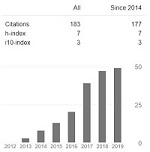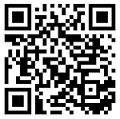Pendekatan aksiologi untuk analisis masalah pendidikan universal
Sari
Urgensi masalah yang sedang dihadapi dalam dunia pendidikan karena ketidakpastian masyarakat dalam mengambil informasi yang berimbas pada tidak fokusnya lembaga pendidikan memperoleh pengetahuan yang siap dalam setiap mata pelajaran. Maka siswa harus dipersiapkan untuk tujuan baru yang tidak berorientasi pada konvensional terus menerus. Siswa harus sadar akan tujuan pendidikan mereka sendiri dalam merancang maupun mengimplementasikan rute pendidikan mereka yang sejalan dengan perubahan kehidupan nyata. Dasar aksiologi pada hakikatnya tidak lepas dari ontologi dan epistemologi. Kebergunaan aksiologi untuk mengukur kebermanfaatan nilai dari dunia pendidikan yang diharapkan dapat menciptakan pendidikan yang modern. Penelitian dilakukan secara literer, dengan kajian pustaka yang dipilih buku-buku dan jurnal atau majalah ilmiah yang memuat uraian mengenai orientasi aksiologi, filsafat ilmu, dan pemecahan masalah pendidikan. Data yang dibutuhkan adalah data kualitatif yang diolah dengan metode reflektif, dilengkapi dengan metode ‘verstehen’. Artikel ini berusaha untuk menentukan karakteristik esensial aksiologi dalam pendidikan universal modern sebagai proses implementasi aksiologi dalam penentuan nasib sendiri guru dan siswa.
The urgency of the problem that is being faced in the world of education is due to the uncertainty of the community in taking information which has an impact on the focus of educational institutions on obtaining ready knowledge in each subject. Then students must be prepared for new goals that are not conventionally oriented continuously. Students should be aware of their own educational goals in designing as well as implementing their educational routes in line with real-life changes. The basis of axiology is essentially inseparable from ontology and epistemology. This research was carried out in a literal way, with a literature review that selected scientific books and journals or magazines which contained descriptions of axiological orientation, philosophy of science, and educational problem solving. The data needed is qualitative data which is processed using a reflective method, supplemented by the 'verstehen' method. This article attempts to determine the essential characteristics of axiology in modern universal education as a process of implementing axiology in the self-determination of teachers and students.
Kata Kunci
Teks Lengkap:
PDFReferensi
Danial, & Warsiah. (2009). Metode Penulisan Karya Ilmiah. Bandung: Laboratorium Pendidikan Kewarganegaraan UPI.
Hessen, J. (1937). Filosofi Wert. Padeborn: Schöningh Verlag.
Iasechko, M.. Kolmykov, M., Larin, V., Bazilo, S., Lyashenko, H., Kravchenko, P., Polianova, N., & Sharapa, I. (2020). Criteria for Performing Breakthroughs in the Holes of Radio Electronic Means under the Influence of Electromagnetic Radiation. ARPN Journal of Engineering and Applied Sciences, 15(12), 1380-1384. http://www.arpnjournals.org/jeas/research_papers/rp_2020/jeas_0620_8240.pdf
Kiryakova, Aida V., Tatiana A. Olkhovaya, Gennady A. Melekesov, and Alexey A. Presnov. (2015). The Axiological Approach to the Analysis of the Problems of Modern University Education. Mediterranean Journal of Social Sciences, 6(2S3), 22-28. http://dx.doi.org/10.5901/mjss.2015.v6n2s3p22
Kuts, M. O. (2015). Problem Technologies in Foreign Languages Teaching of Higher Technical Educational Establishments Students. Bulletin of the Cherkasy Bohdan Khmelnytsky National University: Series "pedagogical sciences, 37(370), 80-84. https://ped-ejournal.cdu.edu.ua/article/view/929
Lougheed, K. (2018). The Axiological Solution to Divine Hiddenness. Ratio, 31(3), 331-341. https://doi.org/10.1111/rati.12186
Mugg, J. (2016). The Quietest Challenge to the Axiology of God: A Cognitive Approach to Counterpossibles. Faith and Philosophy, 33(4), 441-460. https://doi.org/10.5840/faithphil2016101169
Penner, M. A. (2015). Personal Anti-Theism and the Meaningful Life Argument. Faith and Philosophy, 32(3), 325-337. https://doi.org/10.5840/faithphil201563039
Povzun, V. D. (2011). The Mission of the University as an Axiological Phenomenon. Electronic scientific journal Axiology and education innovation. http://www.orenport.ru/axiology/docs/19/17.pdf
Râmbu, N. (2015). Two Axiological Illnesses. Journal of Human Values, 21(1), 64-71. https://doi.org/10.1177/0971685815580669
Ruslan, R. (2008). Manajemen Public Relations & Media Komunikasi. Jakarta: PT Raja Grafindo Persada.
Schudel, I. (2014). Exploring a Knowledge-Focused Trajectory for Researching Environmental Learning in the South African Curriculum. Southern African Journal of Environmental Education 30, 96-117. https://www.ajol.info/index.php/sajee/article/view/121968
Schudel, I. (2016). Exploring Critical Realist Insights into Transformative Environmental Learning Processes in Contexts of Social-Ecological Risk. Critical Realism, Environmental Learning and Social-Ecological Change, 254-272.
Scott., David., & Bhaskar, R. (2015). Roy Bhaskar: A Theory of Education. London: Springer.
Spranger, E. (1930). Lebensformen. Geisteswissenschaftliche Psychologie Und Ethik Der Persönlichkeit. Halle: Max Niemeyer Verlag.
Tomar, B. (2014). Axiology in Teacher Education: Implementation and Challenges. IOSR Journal of Research & Method in Education (IOSRJRME), 4(2), 51-54. https://www.readcube.com/articles/10.9790/7388-04235154
Tytova, N., Bogoliubov, V., Yefymenko, V., Makarenko, L., Mova, L., & Kalientsova, N. (2021). Axiological concept of informatization of education in the age of globalization challenges. Journal of management Information and Decision Sciences, 24(2), 1-9. https://www.abacademies.org/articles/axiological-concept-of-informatization-of-education-in-the-age-of-globalization-challenges-10117.html
DOI: http://dx.doi.org/10.31258/sorot.17.3.139-148
Refbacks
- Saat ini tidak ada refbacks.
##submission.copyrightStatement##
##submission.license.cc.by4.footer##
Hak cipta artikel-artikel pada jurnal ini dimiliki oleh penulis, dan penulis bersedia memberikan hak penerbitan pertama kepada jurnal. Pemilikan hak cipta dilisensikan dibawah Creative Commons Attribution 4.0 International License. Lisensi ini memungkinkan penggunaan, pendistribusian, dan pencetakan kembali tanpa batas pada media apa pun, asalkan penulis dan sumber sebenarnya disebutkan.




